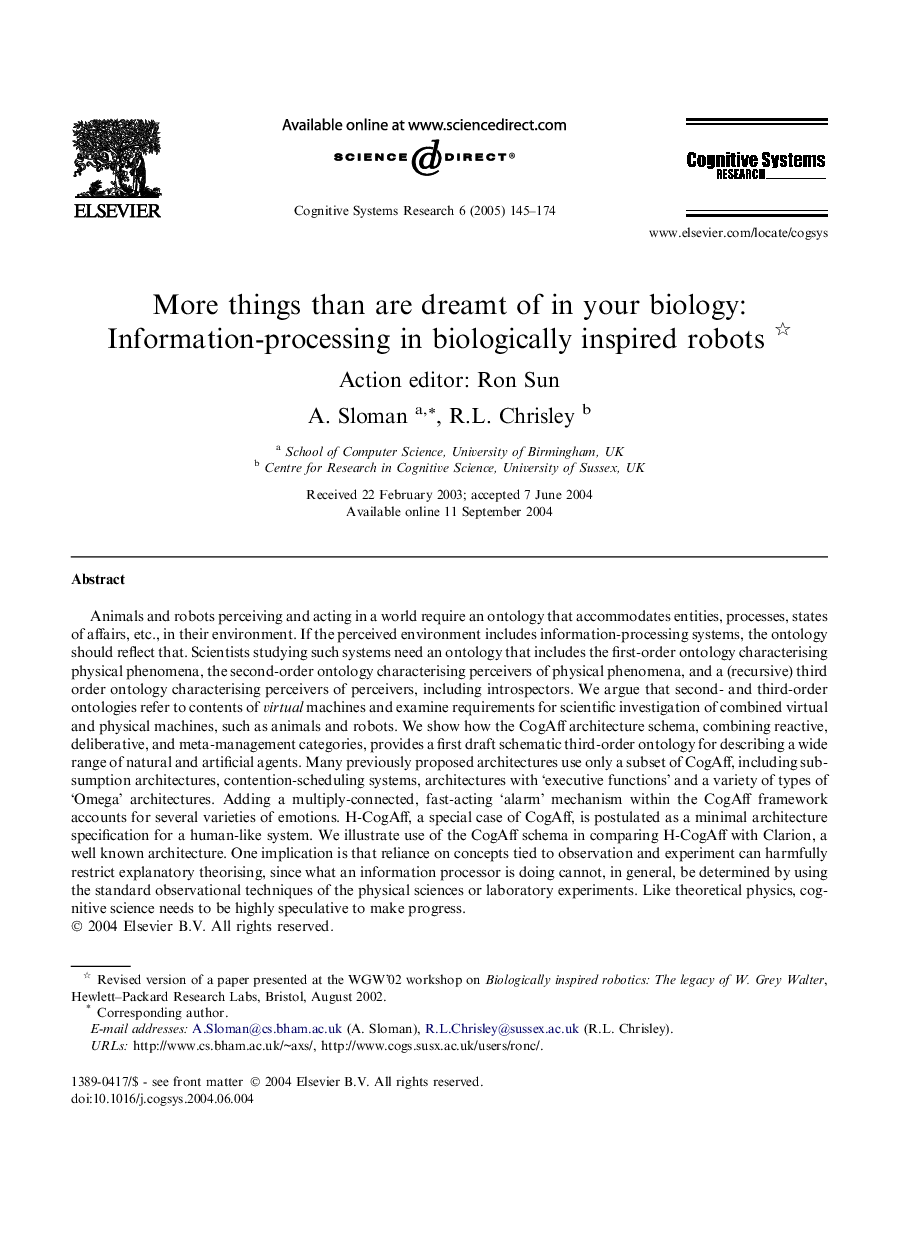| کد مقاله | کد نشریه | سال انتشار | مقاله انگلیسی | نسخه تمام متن |
|---|---|---|---|---|
| 10321115 | 659194 | 2005 | 30 صفحه PDF | دانلود رایگان |
عنوان انگلیسی مقاله ISI
More things than are dreamt of in your biology: Information-processing in biologically inspired robots
دانلود مقاله + سفارش ترجمه
دانلود مقاله ISI انگلیسی
رایگان برای ایرانیان
کلمات کلیدی
موضوعات مرتبط
مهندسی و علوم پایه
مهندسی کامپیوتر
هوش مصنوعی
پیش نمایش صفحه اول مقاله

چکیده انگلیسی
Animals and robots perceiving and acting in a world require an ontology that accommodates entities, processes, states of affairs, etc., in their environment. If the perceived environment includes information-processing systems, the ontology should reflect that. Scientists studying such systems need an ontology that includes the first-order ontology characterising physical phenomena, the second-order ontology characterising perceivers of physical phenomena, and a (recursive) third order ontology characterising perceivers of perceivers, including introspectors. We argue that second- and third-order ontologies refer to contents of virtual machines and examine requirements for scientific investigation of combined virtual and physical machines, such as animals and robots. We show how the CogAff architecture schema, combining reactive, deliberative, and meta-management categories, provides a first draft schematic third-order ontology for describing a wide range of natural and artificial agents. Many previously proposed architectures use only a subset of CogAff, including subsumption architectures, contention-scheduling systems, architectures with 'executive functions' and a variety of types of 'Omega' architectures. Adding a multiply-connected, fast-acting 'alarm' mechanism within the CogAff framework accounts for several varieties of emotions. H-CogAff, a special case of CogAff, is postulated as a minimal architecture specification for a human-like system. We illustrate use of the CogAff schema in comparing H-CogAff with Clarion, a well known architecture. One implication is that reliance on concepts tied to observation and experiment can harmfully restrict explanatory theorising, since what an information processor is doing cannot, in general, be determined by using the standard observational techniques of the physical sciences or laboratory experiments. Like theoretical physics, cognitive science needs to be highly speculative to make progress.
ناشر
Database: Elsevier - ScienceDirect (ساینس دایرکت)
Journal: Cognitive Systems Research - Volume 6, Issue 2, June 2005, Pages 145-174
Journal: Cognitive Systems Research - Volume 6, Issue 2, June 2005, Pages 145-174
نویسندگان
A. Sloman, R.L. Chrisley,